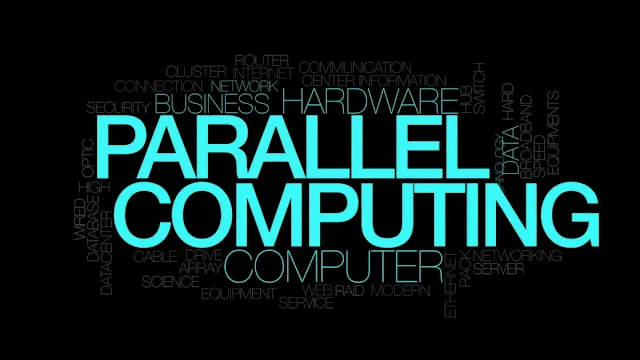Unlock the power of Parallel Computing while understanding the challenges involved. Learn how computing devices represent information effectively. Explore the intricacies of parallel computing solutions and discover the fundamentals of data representation.
The Challenges of Parallel Computing
Parallel computing has become a revolutionary solution to meet the growing demand for faster and more efficient data processing. Parallel computing uses the power of multiple processors or computers to deliver superior performance by breaking complex tasks into smaller, manageable chunks that can be executed simultaneously. However, this innovative technology is not without problems. In this paper, we explore the various obstacles faced in implementing parallel computing solutions and discuss strategies to overcome them.
1. Scalability:
One of the biggest challenges in parallel computing is achieving scalability. As the number of processors or computers increases, it becomes increasingly difficult to ensure an even workload distribution. To avoid congestion and increase performance, it is important to balance the computing load across multiple nodes. Moreover, as the scale of problems increases, it becomes increasingly difficult to maintain efficient communication and synchronization between nodes.
2. Load Balancing:
Load balancing is closely related to scalability and involves evenly distributing tasks across all available resources. Uneven distribution can cause some processors to be underutilized, while others can be overloaded, resulting in reduced efficiency. To achieve optimal load balancing in parallel computing systems, it is very important to develop algorithms and scheduling mechanisms that dynamically adapt to changes in workload.
3. Data Dependency:
Data dependency refers to a situation where the result of one task depends on the results of another task. In parallel computing, handling material dependencies can be difficult because concurrent tasks can cause conflicts or incorrect results. Ensuring proper synchronization and coordination between tasks is critical to maintaining data integrity and consistency.
4. Communication Overhead:
Parallel computing relies heavily on communication between processes to exchange data and synchronize tasks. However, over-communication can lead to significant overhead, which negatively impacts performance. To achieve efficient parallel processing, it is essential to reduce communication costs by optimizing data transmission and reducing unnecessary synchronization.
5. Fault Tolerance:
Parallel computing systems are prone to errors such as hardware failures or network outages. Ensuring fault tolerance is a serious challenge because the failure of one node can affect the entire system. Implementing fault detection, recovery, and backup mechanisms is critical to maintaining system reliability and availability.
6. Programming Complexity:
Parallel programming introduces additional complexity compared to traditional sequential programming. Developers must design algorithms that can be efficiently parallelized and implement synchronization mechanisms to ensure correct execution. Parallel programming languages and frameworks emerged to simplify the development process, but mastering these tools requires special knowledge and experience.
Read More:
7. Resource Management:
Managing resources in a parallel computing environment can be difficult. It is a complex task to distribute and schedule tasks among multiple processors or computers, taking into account their availability, functionality and workload. Effective resource management is essential to avoid resource contention and maximize system utilization.
8. Heterogeneity:
Parallel computing systems often consist of heterogeneous resources, including different types of processors, memory capacities, and network speeds. Coordinating and optimizing the use of these different resources can be difficult because they may have different performance characteristics and communication capabilities. The main challenge of parallel computing is the development of methods to efficiently use the potential of heterogeneous resources.
9. Energy Efficiency:
Parallel computing solutions often require significant power consumption due to the large number of processors or computers involved. Balancing performance with energy efficiency is a challenge, as increasing performance can lead to excessive energy consumption. The development of energy-efficient algorithms and resource management strategies is essential to reduce the environmental impact and operational costs of parallel computing systems.
Parallel computing offers enormous potential to speed up data processing and solve complex problems. But it also presents various challenges that need to be addressed in order to fully harness its power. Scalability, load balancing, data dependency, communication costs, fault tolerance, programming complexity, resource management, heterogeneity, and energy efficiency are the biggest obstacles when implementing parallel computing solutions. By understanding these challenges and developing innovative strategies, researchers and developers can fully harness the potential of parallel computing to revolutionize industries and advance technologies.
People Ask:
1. Which of the following best describes a challenge involved in using a parallel computing solution?
2. Which of the following best describes how computing devices represent information?




I have read your blog as it provides very unique information also very nice and Knowledgeable.
ReplyDeleteRead more related content we published on our blog:
Top Social Bookmarking Sites: The Ultimate Compilation to Boost Your Online Presence